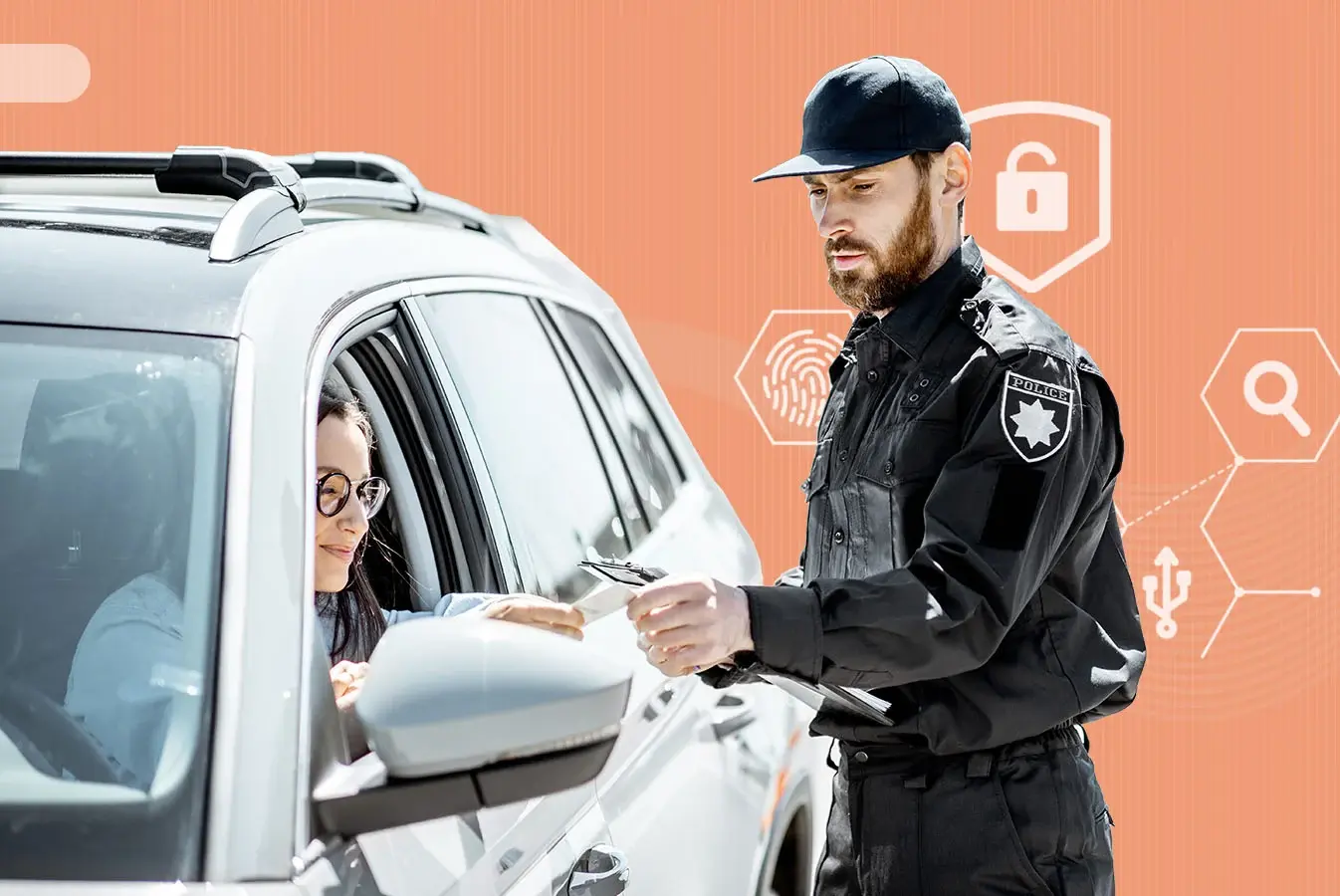Technology is driving the entire world!
Every department is undergoing technology-oriented changes to make its operations more efficient and productive.
The same is the case for the Department of Motor Vehicles (DMV). In the past, people used to stand in long queues to get their driver’s license and vehicle registration.
But things have pretty much changed now!
DMV technology-driven practices have saved them all.
You are aware of the duties of the DMVs worldwide, but do you know there is a DMV investigative Office responsible for protecting the records of drivers and vehicles, safety documents, preventing and investigating fraud activities, and a lot more?
Let’s find out in this article how technology can be utilized to overcome the challenges faced by DMV investigative officers in the best possible ways?
A Quick Introduction to the Department of Motor Vehicles (DMVs)
Many of us have interacted with the DMV at least once in our lifetime. Each state, and even other countries, may have the same departments with the same general purpose under different names, such as the Motor Vehicle Division (MVD) or the Bureau of Motor Vehicle (BMV).
The primary responsibility of an organization such as the DMV is handling various vehicle functions, such as vehicle registration, license issuance, and dealing with personal identity cards.
But there are certain DMV investigation divisions, offices, or units widespread all around the world to detect any suspicious or criminal activity against DMV programs, documents, or confidential data.
For instance, the California Department of Motor Vehicles (DMV) has an investigation division that is authorized to take the following actions depending upon the type of case:
-
Administrative actions against a suspect.
-
Secure the integrity of DMV data.
-
Case Investigations such as counterfeit detection, fraud, or vehicle theft.
-
Prevent criminal operations.
-
Enforce laws and promote public safety.

What Are the Challenges Faced by DMVs These Days?
It is now evident from the fact that DMV officers have many important duties to perform. While performing all these operations, they face many challenges.
Let's discuss these challenges separately.
-
They usually gather a huge pile of data about vehicle registration, license, digital evidence (videos, audio recordings) regarding criminal activities, and other sensitive data. Here storage is a big challenge for them.
For example, if they opt for local storage devices like CDs or thumb drives, storing such enormous amounts of data with their limited storage capacity is impossible.
-
Along with storage, they are much more concerned about their data security. Currently, they have no secure platform to store their data securely.
-
DMVs have a designated department for administrative hearings conducted in front of a Driver Safety Hearing Officer. All hearings are usually recorded for future reference. Again, it is challenging for DMV officers to store and manage them.
-
Mostly, recordings and evidence must be sent via email or physically transported to the DMV headquarters.
-
On top of that, DMV officers manually perform most of their tasks, such as data storage and its management. How tiring it is!
So, how to overcome these challenges?
To accelerate the overall DMVs operations and reduce manual efforts, DMVs all over the world need to have a complete Digital Evidence Management System.
Upgrade DMV Technology Practices with Digital Evidence Management Software
It is highly recommended to enhance DMV operations by deploying Digital Evidence Management Software in their systems.
It is important for all DMVs to have modern technology-driven software to overcome these challenges and facilitate the entire process of investigation and administrative hearings.
But now, the question must be roaming in your mind!
How can DMV upgrade all their tasks with Digital Evidence Management Software?
Want to know the benefits of using it?
With DEMS, you can store unlimited data on the cloud or on the local servers. So, you do not need to worry about data storage anymore. Cloud storage software allows you to access data from anywhere, anytime.
Learn more about: The Best CJIS Compliant Cloud Storage Software for Your Agency.
No need to have local storage devices and human resources to handle them all!
Moreover, digital evidence software can make your digital files quickly searchable for you through categories, auto-tags, custom attributes such as case file numbers, officer's names etc.
But what about security, which is immensely important?
A digital evidence management solution solves this problem too!
Many market tools are available that provide secure data management features such as end-to-end encryption, role-based access control, and SSO integration for small departments and different governmental organizations.
In addition, sharing digital files has become stress-free by using digital evidence management software with limited and controlled sharing options for specific users and groups in each department.
So, are you curious about the software most suitable for your needs and aids in the different ways of overcoming these challenges?
Fret not, because we have the perfect solution!
VIDIZMO’s Digital Evidence Management System
How VIDIZMO Enhances the DMV Technology to Overcome These Challenges?
VIDIZMO, being an expert in this field, understands your requirements. It provides you with an IDC MarketScape Recognized Digital Evidence Management System (DEMS) to handle digital evidence in each step.
This software is known to offer diverse features in terms of automation and artificial intelligence including secure storage, limited evidence sharing options, redaction of PII, transcription, and translation of digital files in different languages of your choice, and flexible deployment options as per your organizational needs and much more.
Want to know more about DEMS in detail?
-min.jpg?width=6676&name=DEMS%20interface-Justice%20and%20law%20white%20(1)-min.jpg)
The list of features is given below:
-
Collection of digital evidence files from a wide variety of sources body-worn cameras, dashcams, drones, CCTV cameras, mobile phone call recordings, etc.
-
Integration with various existing applications like CAD, CMS, LMS, and RMS systems.
-
SSO Integration with various identity providers such as OneLogin, and Okta for login purposes.
-
Role-based access control gives access to only authenticated users with certain permissions as assigned to each role such as administrator, manager, moderator, viewer, etc.
-
Secure evidence sharing online within and outside the department with restricted options for each user e.g., view only, number of views, expiry links, multiple links for each file, IP address restriction, etc.
-
Flexible deployment options, either deploy your digital files on the commercial cloud/government cloud Azure or AWS, on your local servers or in a hybrid environment.
-
Tamper detection through SHA cryptographic hash values to prove the authenticity of digital evidence.
-
A complete chain of custody is established and maintained for tracking each evidence file.
-
File annotations to mark or highlight any significant information present in digital files.
-
An extra layer of security with FIPS-Compliant End-to-End Encryption, password protection, SSO integration, and a lot more.
-
Fulfill various compliance requirements such as FOIA, HIPPA, CJIS, etc.
-
Automatic redaction of sensitive information in audio, videos as well as images.
And the list of features goes on...
Do you want a 7-day free trial to explore all the features? Or you can opt for a product demo!
Or you can opt for a product demo!
Posted by VIDIZMO Team
We at VIDIZMO are experts in secure and compliant video streaming and digital evidence management. Our aim is to help educate such that you can better utilize your video data.



.png?width=1280&name=DMV%20CTA%20(1).png)

